CAASPP made mandatory for all juniors
March 24, 2019
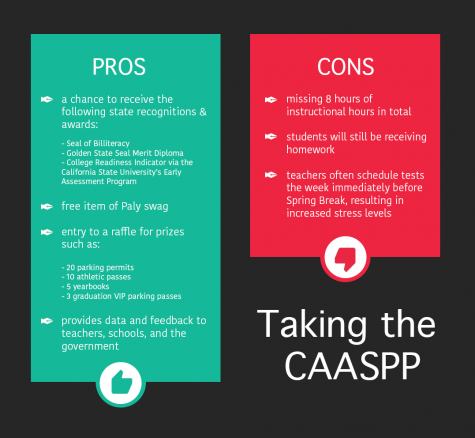
All juniors at Palo Alto High School will be required to participate in the California Assessment of Student Performance and Progress this year, in an effort by the school board to assemble a higher participation rate, according to Supt. Don Austin.
The Palo Alto Unified School District is offering incentives to students who complete all of the CAASPP examinations next week, according to an email forwarded to Paly parents by Assistant principal Tom Keating, from Superintendent Austin.
Through a raffle, students will be able to win student parking permits for the 2019-20 school year (which usually cost up to $100), athletic passes for the 2019-20 school year, 2018-19 yearbooks or VIP parking passes to the 2019-20 graduation ceremony.
Regardless, all students who complete all of the testings will win one item of Paly “swag,” according to the letter.
Last year, only 40 percent of Paly juniors completed the test, compared to the 95 percent required participation rate, Austin stated in an email to parents on Feb. 28.
In the email, Austin stated that although parents are highly encouraged to permit students to take the exam, parents or guardians are able to submit a written request to the principal of their student’s school to excuse their child from any or all parts of the CAASPP summative assessments.
Compared to Henry M. Gunn High School, which had a parent-guardian exemption percentage that fell from 64 percent in 2016 to 28 percent in 2017, Paly has a previous history of having an abnormally low attendance record compared to other schools, according to an article by Palo Alto Online.
In the email, assistant principal Keating also stated that one of the major benefits of taking the exam is state recognition and awards upon graduation. Students are able to earn three additional awards or seals with the completion of the exam.
Students who meet the requirement of proficiency in literacy in one or more languages are able to earn the State Seal of Biliteracy awarded by California’s superintendent of public instruction. Students are only able to earn the seal if they pass the exam with a score of at least “Standard Met,” in the English category.
Students are also able to earn the Golden State Seal Merit Diploma, a diploma awarded to students who demonstrate a grasp of high school curriculum in at least six subjects. GSSMD is awarded to students by both the State Board of Education and the state superintendent.
The College Readiness Indicator, via the California State University’s Early Assessment Program, works to demonstrate a student’s readiness for college-level coursework in both English and math. Used by the California State University and participating California Community Colleges, the exam helps these California college systems when it comes to determining a students Early Assessment Programs status.
Paly Spanish teacher Kevin Duffy is an advocate for the exam and said in an email to The Paly Voice that he thinks it is both important and rewarding for students to participate.
“Exams like the CAASPP provide information about how well and how much our students are learning,” Duffy said. “We need data from exam results like the CAASPP to inform our teaching. We have a dilemma because the state and federal government require high participation rates —around 95 percent, I believe — yet parents and students sometimes decide to opt out.”
Duffy said he thinks one of the main reasons that parents let their students be excused is the pre-conceived notion that students already have enough on their plates.
“Reasons I’ve heard in the past include the perception — which I don’t agree with — that students take too many tests, so ‘one more’ isn’t necessary,” Duffy said. “Though it might sound harsh, this kind of justification is selfish and unwarranted. Students feel they deserve a break from exams and convince their parents they don’t need to participate. There’s a certain level of arrogance to this kind of thinking that I don’t agree with.”
Duffy said he thinks parents should reconsider what their students could be losing from not participating.
“I’d hope parents and students would be reminded that in order to earn the Seal of Biliteracy from the State of California, students need to show proficiency in English by taking and passing the CAASPP,” Duffy said. “No CAASPP participation means students can’t earn the Seal of Biliteracy. Such a shame to miss out on that opportunity for so many of our students. I’m not sure how to convince our students — and their parents — that there’s a need for the ‘greater good’ beyond individual feelings regarding this test. There are obligations in life that everyone has.”
The exam will take place over the course of two days, Monday, March 25, and Tuesday, March 26, with an additional day for make-up testing on March 27. This testing arrangement has angered some juniors, who will now have to miss their regular scheduled classes.
Junior Leanna Colanino said it is unfair that juniors are being pulled out of class, where they could potentially be missing vital information.
“I didn’t think I cared that much until I realized that, knowing my teachers, some them still assign homework on days that we’re not supposed to have it,” Colanino said. “Lots of my classes are mixed with other grade levels, so regardless, I would be missing content, and that’s really frustrating and unfair.”
According to Colanino, one of the reasons why she and some of her classmates are choosing to take the exam is not out of interest, but because of the resulting incentives.
“I want to take the CAASPP test in order to be ‘officially’ considered bilingual by the state,” Colanino said. “I’m sure other students have incentives to take the test as well, but I think I can speak for me and a lot of my friends when I say that it’s a hard decision to make.”


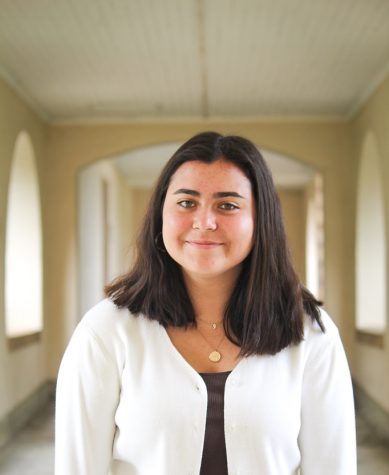

![In the fourth period AP Calculus BC class at Palo Alto High School, senior Crystal Li places her phone in the “phone jail.” Starting July 2026, this may become a normal procedure across schools in California thanks to Governor Gavin Newsom signing the Phone-Free School Act into law last week. According to Li, there are often unnecessary complications that come with enforcing phone restrictions. "It becomes a hassle putting it [a phone] in [the phone jail] before class, and taking it out after class," Li said. "There have been multiple times where kids from other periods interrupt the teacher to come back in and pick up a phone they left."](https://palyvoice.com/wp-content/uploads/2024/09/IMG_7386-3-300x225.jpg)
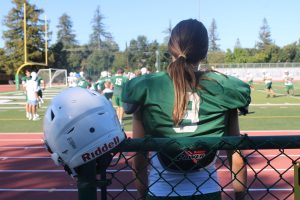
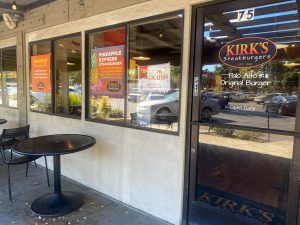

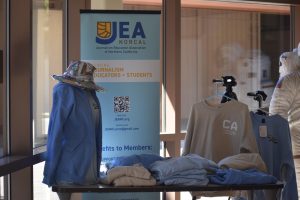
Kathy Jordan • Apr 15, 2019 at 8:47 am
Gunn did not require students to miss academic classes (including tests) to take the CAASPP test; it scheduled around the CAASPP so no one missed academic classes. Why not Paly?
Joan Davidson • Apr 7, 2019 at 10:02 pm
The CA Ed Code gives EVERY parent the right to Opt Out.
Even the CTA website urges Parents to Know Their Rights.
There is NO EARTHLY REASON TO TAKE THIS TEST.
Read the CTA Opt Out Rights for Parents:
https://www.cta.org/~/media/Documents/Issues%20%20Action/Testing%20Standards/Parent%20Opt%20Out%20QA%20Final%20(2).ashx